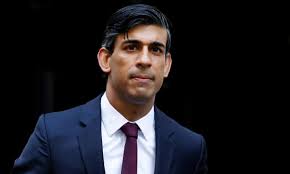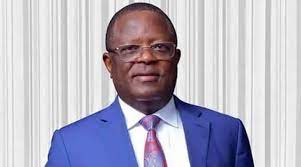Britain’s inflation rate dropped to 3.1 percent year-on-year (Y-o-Y) in September following the artificial blip caused by year 2020’s ‘Eat Out to Help Out’ scheme dropped out of the figures.
However, analysts are projecting that higher prices are still expected in the months ahead.
The Office for National Statistics (ONS) reported on Wednesday that the increase in consumer prices represented a 0.1 points lower than the 3.2 percent recorded in August but the rate was still well above the Bank of England’s (BoE’s) 2 percent target for a second month.
Financial markets are pricing in the bank’s plan to raise interest rates next month to contain an upward spiral in prices, as central bank officials expect the headline inflation rate to jump above 4 percent this year.
In his comments on the latest rate, the ONS head of prices, Mike Hardie, said: “Annual inflation fell back a little in September due to the unwinding effect of last year’s ‘Eat Out to Help Out’ [scheme], which was a factor in pushing up the rate in August.
“However, this was partially offset by most other categories, including price rises for furniture and household goods and food prices falling more slowly than this time last year”, the statistician added.
The latest inflation report showed that the cost of transport led gains in inflation in September, with a high increases in petrol prices even before the fuel crisis reduced supplies across the country.
During the month under review, average petrol prices were at 134.9 pence ($1.85) per litre compared with 113.3 pence per litre a year earlier, as fuel provided an upward pressure on inflation
The ONS further reported that used car prices also rose sharply amid a global shortage of semiconductors, increasing 2.9 percent on the month to September.
This is even as the Office noted that cost of manufactured goods also rose with metals and machinery showing a notable price rise, while road freight costs for UK businesses continued the upward trajectory seen over the summer.
However, the ONS officials stated that these factors were offset by a sharp decline in prices at hotels and restaurants, which fell back in September when compared with a year ago.
Further analysis of the inflation on sectoral basis showed that the Consumer Prices Index (CPI), including owner occupiers’ housing costs, grew 2.9% Y-o-Y in September, down from 3.0% in August
Economics expert and senior investment and markets analyst at Hargreaves Lansdown, Ms Susannah Streeter, was quoted by a news medium as projecting that the country’s inflation could hit 5 percent next April despite the slight dip in September, which could lead the BoE to increase interest rates imminently.
She explained: “With prices staying stubbornly high and another surge expected, a gentle rise in interest rates before the end of the year still looks likely if there is any chance of keeping a Goldilocks economy [where an economy is not too hot or too cold but just right, stealing a line from the popular children’s story Goldilocks and the Three Bears] within reach
“Too much inflation in the mix risks the economy getting too hot, leading prices to spiral upwards. If rates are pushed up rapidly, there’s a risk it gets too cold, freezing off economic growth. A 2 per cent inflation target is considered just right, as long as the economy also keeps growing.
“If gas prices continue to spike and power rationing is introduced by energy intensive industries, economic growth could be knocked back into a downturn”, Streeter added.
However, Chancellor of the Exchequer, Rishi Sunak, said the government was collaborating with businesses and international partners to address the pressures of rising inflation as global shocks push up prices around the globe.
He said: “We are supporting people with the cost of living, including through a new £500 million support fund to help vulnerable households, the energy price cap, and assistance with energy bills through the winter.”




